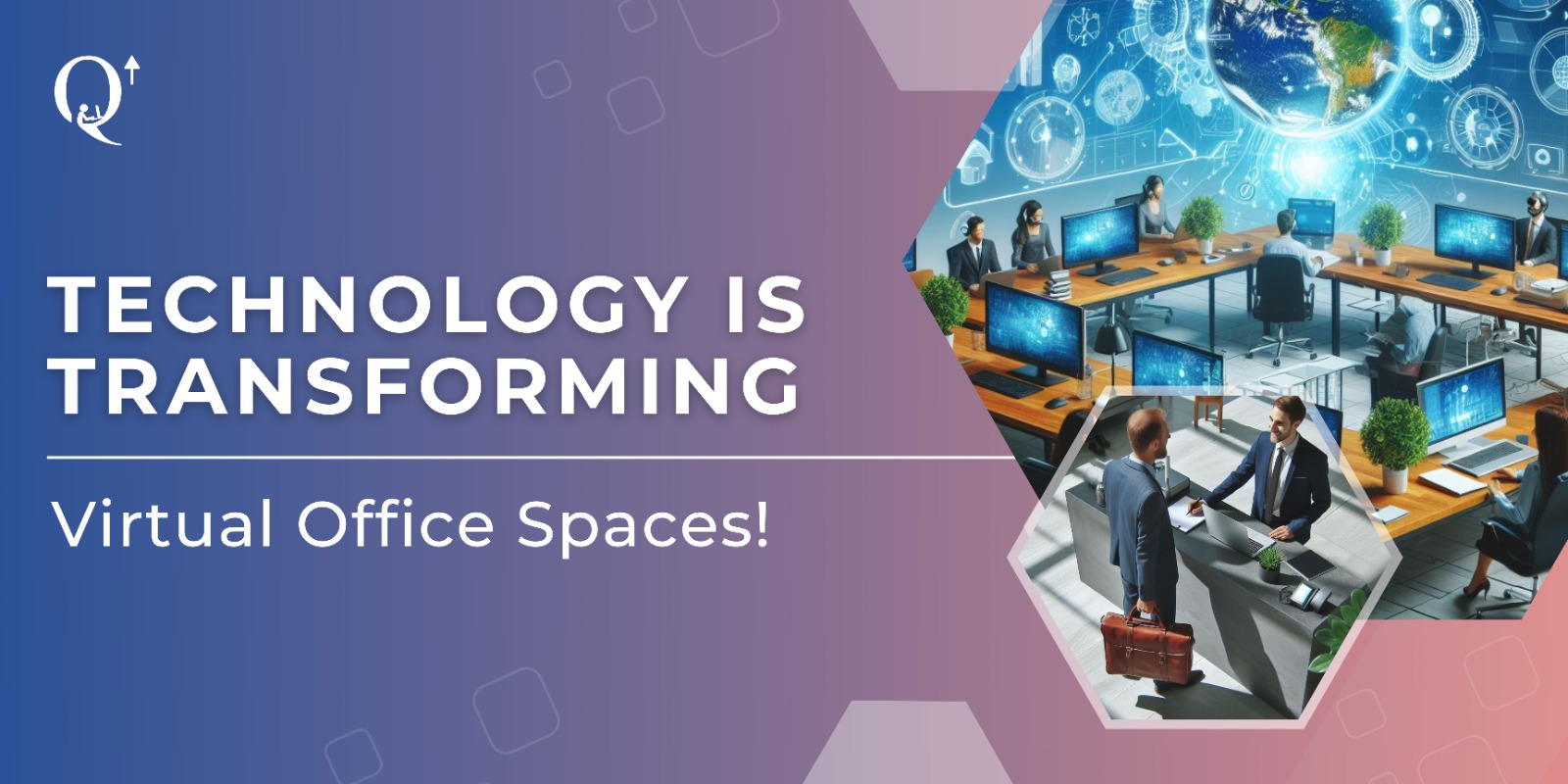The workplace concept has evolved significantly with technological advancements, giving rise to virtual office spaces in India. These modern solutions offer businesses flexibility, reduced overhead costs, and the ability to maintain a professional image without needing physical office premises.
As we delve into how technology continues to mould the landscape of virtual office spaces in India, it becomes clear that the future of work lies beyond traditional office setups, embracing digital transformation and innovative management practices.
Defining Virtual Office Spaces
Virtual office spaces are a revolutionary approach to traditional office environments. They provide businesses with communication services, a professional address, and access to meeting rooms without requiring a physical office space.
Unlike traditional offices, virtual offices do not require employees to work from a specific location, allowing for greater flexibility and significant cost savings. This model supports remote work, catering to freelancers, entrepreneurs, and businesses looking to expand their footprint without significant investments in physical spaces.
Technological Advancements in Indian Virtual Office Spaces
- Cloud Computing
- Collaboration Tools
- Virtual Reality (VR) and Augmented Reality (AR)
- Cybersecurity Solutions
- Artificial Intelligence and Machine Learning
- Internet of Things (IoT)
- Unified Communications
Cloud computing offers on-demand access to computing resources like servers, storage, databases, networking, software, and more over the internet. This technology is foundational for virtual offices, allowing data and applications to be accessible anytime, anywhere.
Impact- Enhances flexibility and scalability, reduces costs associated with physical hardware, and supports a distributed workforce.
Tools like Slack, Microsoft Teams, Notion, and Zoom provide platforms for messaging, video conferencing, and project management. These tools are essential for communication and coordination in a virtual office setting.
Impact- Facilitates real-time communication and collaboration across different geographies, improving teamwork and productivity.
VR and AR technologies can simulate a physical office environment, allowing users to interact with a virtual space that feels as if they are physically present. It is very helpful for tasks that require spatial awareness or a high level of interaction.
Impact- Enhances engagement and realism in remote interactions, improving training, design, and meetings.
As virtual offices rely heavily on digital communications and cloud services, robust cybersecurity measures are crucial to protect sensitive data and maintain privacy.
Impact- Ensures the integrity and confidentiality of business data, protecting against cyber threats and compliance with regulations.
AI and ML can automate routine tasks, provide analytics for better decision-making, and personalise user experiences in Indian virtual office environments.
Impact- Increases efficiency, reduces human error, and can predict user needs for better resource management.
IoT devices can be used in virtual offices to monitor and manage physical resources remotely, such as adjusting lighting and temperature or tracking equipment usage.
Impact- Enhances the management of physical assets remotely, providing a more productive and comfortable working environment.
Unified communications integrate voice, video, data, and mobile applications to enhance communication across various platforms and devices.
Impact- Providing a consistent interface across multiple channels streamlines communication processes, reduces latency, and improves user experience.
Benefits of Virtual Office Spaces
- Cost Efficiency
- Flexibility and Scalability
- Enhanced Professional Image
- Work-Life Balance
- Environmental Impact
Virtual offices eliminate the need to rent, pay utilities, and maintain physical offices, significantly reducing overhead costs. Businesses can invest these savings into growth initiatives, technology upgrades, and enhancing employee benefits.
With no physical space to maintain, businesses can scale up or down without the logistical challenges of moving or restructuring office space. This flexibility benefits startups and SMEs looking to adapt quickly to market changes.
A prestigious business address associated with virtual offices in India can significantly enhance a company’s professional image. Access to state-of-the-art meeting rooms and administrative support further reinforces this professional appearance to clients and partners.
With virtual offices, professionals can work from anywhere, which supports a better work-life balance. This flexibility increase job satisfaction and productivity, attracting top talent who value autonomy and flexible working conditions.
Virtual offices reduce the need for daily commutes and physical office resources and decrease carbon footprint. This sustainable approach aligns with the growing global emphasis on environmental responsibility.
Challenges and Solutions in Virtual Workspaces
Challenges
- Communication Barriers- Remote work can lead to miscommunications and a lack of immediate feedback.
- Isolation- Employees may feel disconnected from the team, impacting collaboration and morale.
- Security Risks- Increased digital communication can expose businesses to cybersecurity threats.
- Over-reliance on Technology- Technical issues can disrupt work, especially if not promptly resolved.
- Maintaining Corporate Culture- Building a unified corporate culture can be challenging without physical interactions.
Solutions
- Utilise comprehensive communication tools to ensure clear and consistent contact.
- Regular virtual meetings and team-building activities can help mitigate feelings of isolation.
- To ensure sensitive data and communications are protected, implement robust cybersecurity measures.
- Invest in reliable technology and provide IT support to minimise downtime.
- Foster a robust corporate culture through shared values, regular communication, and virtual social events.
Future Trends in Virtual Office Technology
The advancement of new-age technologies such as Virtual Reality (VR) and Artificial Intelligence (AI) can potentially transform virtual office spaces in India. AI can improve business operations by automating tasks and offering better data analytics. On the other hand, VR can simulate physical office environments, making remote work more engaging and interactive. These advancements will continue to refine the functionality and appeal of virtual offices, leading to broader adoption across various industries.
Bottom Line
Integrating technology in Indian virtual office spaces has redefined traditional business models and opened up many opportunities for efficiency and expansion.
As we have explored, the benefits range from cost savings to enhanced corporate image, balanced against manageable challenges through innovative solutions.
To stay ahead in this dynamic environment, consider leveraging the flexibility and professional services offered by virtual office solutions like Qdesq.
Visit Qdesq for more insights and to book your virtual office across India. Follow us for continuous updates on workspaces and the future of work. Transform how you work with Qdesq, where work meets technology.
Read more:










